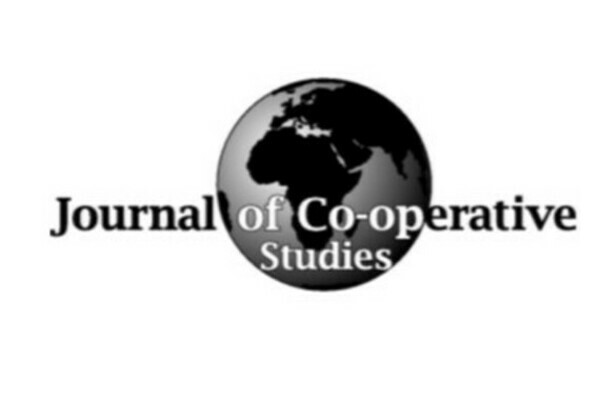Refereed articles
The ‘mutualisation’ of public services in Britain: A critical commentary.
Johnston Birchall, pp. 5-16.
This article provides a critical commentary on the ‘new mutualism’, an intellectual current in the recent debate about public services in Britain that argues for the ‘mutualisation’ of service delivery agencies. First, it defines a mutual, and identifies important ways in which the new mutuals diverge from this definition. It traces the genesis of the idea in the ‘old mutualism’ of pre-welfare state Britain, explaining how mutuals were rejected in the setting up of the postwar welfare state. It describes how foundation hospitals and other recent developments have been influenced by a new appreciation of the idea of mutuality that has been used to help shape New Labour’s modernisation of public services. It shows how mutuals fit with other new forms such as the public interest company and social enterprise, and with a broader ‘script’ provided by communitarianism and the ‘third way’. It considers potential weaknesses in the argument, and then reviews criticisms concerning inequality and lack of participation. Finally, it asks whether the concept will remain as influential in the future, and whether it will deliver the improvements in public services that its advocates have promised.
Do large membership-based businesses have a future in the twenty first century? Some reflections on UK retail co-operative societies.
Cliff Mills, pp. 17-29
To somebody outside the movement, UK retail co-operative societies might appear to be something of an anomaly. These businesses, whose combined turn-over exceeds £12 billion, are still owned and controlled by their members, and have a democratic governance structure based on an elected board. This paper considers whether such an ownership and governance structure has a place in the twenty first century, and whether such societies can realistically expect to survive and compete with investor-owned businesses. It concludes that they can survive and compete if they challenge investor-owned businesses head-on, and structure and manage themselves in a way designed to meet contemporary needs.
Co-operative governance: The case of Spanish credit unions.
Rafael Chaves, Francisco Soler and Antonia Sajardo, pp. 30-37.
Corporate governance is traditionally one of the major challenges of co-operatives and Social Economy (SE) companies. As democratic member-based organisations, they have specific models of governance, but also specific problems. In recent decades, social pressure and market demands on corporate management and governance structures are increasingly pressing as regards both introducing efficient strategies (economic, financial, negotiating and management) and functioning in an ethically friendly manner (socially responsible business operations). Strategies and structures are closely linked in the upper echelons of governance, particularly in the relationships between top management, boards of directors and key owner groups (as well as stakeholders such as employees and local government). Various factors diminish the efficiency of governance systems, however. Prominent among these are conflicts of interest between owners (shareholders) and controllers/executives (board of directors and managers) (Berle and Means, 1932). This problem highlights the magnitude of certain real failures of corporate governance. The greatest theoretical and business challenge is to conceive and implement optimum institutional models for these corporate governance relationships, in the form of new governance regulations, codes of conduct of good governance and internal institutional changes.
Short papers
The worker co-operative code of governance.
Bob Cannell, pp. 42-44.
This article begins by suggesting that although consumer co-operatives in the UK have been successful businesses from the 1850s onwards, worker co-operatives have suffered from a lack of ‘administrative discipline’ and consequently have not yet reached their full potential. However, the article goes on to explain, in order to remedy this, a number of worker co-operatives have collaborated with Co-operatives UK to produce a Worker Co-operative Code of Governance. This provides a guide to governing worker a co-operative democratically and managing its business effectively. The Code, launched in June 2008, is believed to be the first of its kind in the world. It has two elements – a short booklet giving a framework of good practice for worker co-operatives to follow and an online resource that will be built up over time by UK worker co-operatives themselves. The Code, it is suggested, is exactly what is needed to really strengthen and develop the worker co-operative sector in the UK.
Governing for success – a code of governance for credit unions.
Chris Canham, pp. 45-47.
In October 2008, the first Code of Governance for credit unions in Britain will be published by the Association of British Credit Unions Ltd (ABCUL). Governing for Success – a Code of Governance for Credit Unions will be launched appropriately as part of the International Credit Union Day celebrations. It marks a major step forward in the professionalisation and strengthening of the British credit union movement.
Deepening co-operativism.
Peter Somerville, pp. 48-49.
This paper is a response to Ratner (Journal of Co-operative Studies, 2007). Whilst sympathetic with many points made in that paper, it argues that the concept of deep co-operativism it expounds is problematic in certain respects and is only one of many possible ways forward for the co-operative movement. A number of alternatives to deep co-operativism are presented, such as participatory economics, social ecology and a more orthodox co-operativism. The paper concludes that there are problems with all these approaches but this is not a reason to reject any of them in our search for a genuinely more co-operative society.
Book reviews
A Dictionary of Alternatives. By Martin Parker, Valérie Fournier and Patrick Reedy.
Reviewed by Len Arthur, pp. 50-51.
The Future of Co-operatives in a Growing Europe. Edited by Rafael Chaves, Jose Juis Monzon, Yohanan Stryjan, Roger Spear and Simeon Karafolas.
Reviewed by Rita Rhodes, pp. 52-53.
The Co-operative Party – Literature Feast and Famine.
Revisited by Jim Craigen, 54-56.










